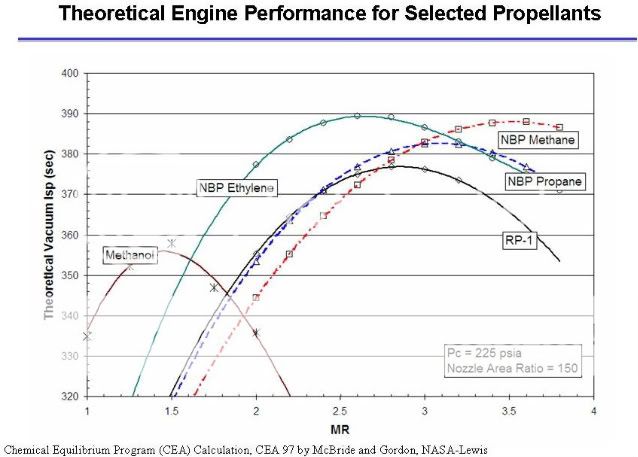W
wtrix
Guest
I found myself wondering - why don't they use methane as a primary fuel in rockets instead of LH2? This far the talk has only been about methane usage in lunar landers, but why not in main rocket motors?
IMHO methane has some very serious advantages over LH2:
1. More density than LH2 in liquid form (500kg/m3 instead of 70kg/m3) enabling a lot smaller fuel tank and thus a lot smaller rocket
2. Low CO&CO2/high H2O emissions enabling fast exhaust speeds and thus almost as high Isp as in LH2 rockets
3. A lot higher boiling temperature, thus necessitating less insulation
4. Significantly slower outboiling during tank fill-up
5. Easier to handle
6. Some kerosene based motors shall be easily convertable to methane motors (Saturn 5 was petroleum fuelled for example)
7. Cheaper and abundant. In fact currently almost all of the H2 is made from natural gas, which is basically methane
8. Similar boiling temperature with LOX enables "stright trhough tank" plumbing conserving some weight on tubes and the insulation of those
Any liquid fuel rocket people here who can explain why LH2 and not CH4?
IMHO methane has some very serious advantages over LH2:
1. More density than LH2 in liquid form (500kg/m3 instead of 70kg/m3) enabling a lot smaller fuel tank and thus a lot smaller rocket
2. Low CO&CO2/high H2O emissions enabling fast exhaust speeds and thus almost as high Isp as in LH2 rockets
3. A lot higher boiling temperature, thus necessitating less insulation
4. Significantly slower outboiling during tank fill-up
5. Easier to handle
6. Some kerosene based motors shall be easily convertable to methane motors (Saturn 5 was petroleum fuelled for example)
7. Cheaper and abundant. In fact currently almost all of the H2 is made from natural gas, which is basically methane
8. Similar boiling temperature with LOX enables "stright trhough tank" plumbing conserving some weight on tubes and the insulation of those
Any liquid fuel rocket people here who can explain why LH2 and not CH4?



